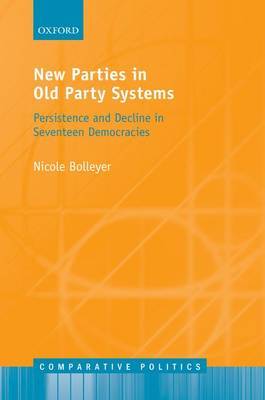Intergovernmental cooperation
rational choices in federal systems and beyond
- ISBN: 9780199570607
- Editorial: Oxford University Press
- Fecha de la edición: 2009
- Lugar de la edición: Oxford. Reino Unido
- Colección: Comparative Politics
- Encuadernación: Cartoné
- Medidas: 22 cm
- Nº Pág.: 249
- Idiomas: Inglés

Over the past decades, governments have increasingly been confronted with problems that transcend their boundaries. A multitude of policy fields are affected, including environment, trade and security. Responding to the challenges triggered by Europeanization and globalization, governments increasingly interact across different spheres of authority. Both theoretically and empirically, the puzzle of institutional choice reflected by the variety of arrangements in which intergovernmental cooperation takes place inside individual countries and across their borders remains surprisingly under-explored. In an attempt to solve this puzzle, the book tackles the following questions: Why are the intergovernmental arrangements governments set up to deal with boundary-crossing problems so different? To what extent do these institutional differences affect the effectiveness of intergovernmental cooperation? To address this gap theoretically and empirically, this book adopts a deductive, rationalist approach to institution-building. It argues that internal politics, the type of executive-legislative relations within the interacting governments, explains the nature of institutions set up to channel intergovernmental processes: while power- sharing governments engage in institution-building, power-concentrating governments avoid it. It also shows that these institutional choices matter for the output of intergovernmental cooperation. The approach is applied to Canada, Switzerland, the United States, and finally the European Union. Disaggregating individual government units, the theoretical approach reveals how intragovernmental micro-incentives drive macro-dynamics and thereby addresses the neglect of horizontal dynamics in multilevel systems. The willingness and capacity of lower- level governments to solve collective problems on their own and to oppose central encroachment are crucial to understand the power distribution in different systems and their long-term evolutions.








